
WASHINGTON:
The elephant-like animal's remains were first discovered 45 years ago at the Manis Mastodon site on the Olympic Peninsula. Recent CT scanning and 3-D software analysis revealed that tiny bone fragments embedded in its rib were pieces of a projectile fashioned from the leg bone of another mastodon. This represents the oldest known bone spearpoint in the Americas and the earliest evidence of mastodon hunting.
PENNSYLVANIA:
A U.S. Army ordnance disposal team was summoned to Gettysburg when a 160-year-old live artillery shell was uncovered during archaeological work. The 7-inch-long unexploded round was found 2 feet below the surface near a rocky outcrop known as Little Round Top. During the Civil War's bloody Battle of Gettysburg, Little Round Top was held by Union troops. It witnessed intense fighting during a Confederate assault on July 2, 1863, that resulted in as many as 1,700 casualties.
CHILE:
A new moai was found at the bottom of a dry lake bed in the Rano Raraku volcanic crater on Easter Island. The iconic sculptures were carved between 1,000 and 500 years ago and represent the ancestors of the island's Rapanui people. Measuring just 5 feet tall, the new figure is relatively small compared to others on the island, which average 13 feet in height and weigh around 14 tons each. The majority of Easter Island's 1,000 moai were carved out of Rano Raraku's soft volcanic tuff.
ENGLAND:
Esta historia es de la edición May/June 2023 de Archaeology.
Comience su prueba gratuita de Magzter GOLD de 7 días para acceder a miles de historias premium seleccionadas y a más de 9,000 revistas y periódicos.
Ya eres suscriptor ? Conectar
Esta historia es de la edición May/June 2023 de Archaeology.
Comience su prueba gratuita de Magzter GOLD de 7 días para acceder a miles de historias premium seleccionadas y a más de 9,000 revistas y periódicos.
Ya eres suscriptor? Conectar
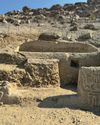
ORIGINS OF PERUVIAN RELIGION
While investigating looters' holes at the site of La Otra Banda in northern Peru's Zaña Valley, archaeologist Luis A. Muro Ynoñán of the Field Museum and the Pontifical Catholic University of Peru spotted carved blocks around seven feet below the surface.
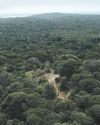
ISLAND OF FREEDOM
Many of the enslaved Africans sent to Brazil beginning in 1549 were from what is now Angola, where one of the most widely spoken languages was Kimbundu.
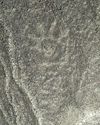
NAZCA GHOST GLYPHS
From the 1940s to the early 2000s, geoglyphs were discovered in the Nazca Desert of southern Peru depicting animals, humans, and other figures at the rate of 1.5 per year.

COLONIAL COMPANIONS
The ancestry of dogs in seventeenth-century Jamestown offers a window into social dynamics between Indigenous people and early colonists.
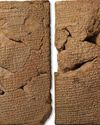
BAD MOON RISING
The British Museum houses around 130,000 clay tablets from ancient Mesopotamia written in cuneiform script between 3200 B.C. and the first century A.D.
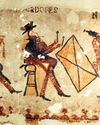
DANCING DAYS OF THE MAYA
In the mountains of Guatemala, murals depict elaborate performances combining Catholic and Indigenous traditions
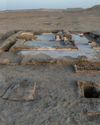
LOST GREEK TRAGEDIES REVIVED
How a scholar discovered passages from a great Athenian playwright on a discarded papyrus

Medieval England's Coveted Cargo
Archaeologists dive on a ship laden with marble bound for the kingdom's grandest cathedrals
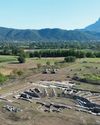
Unearthing a Forgotten Roman Town
A stretch of Italian farmland concealed one of the small cities that powered the empire
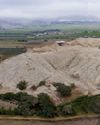
TOP 10 DISCOVERIES OF 2024
ARCHAEOLOGY magazine reveals the year's most exciting finds